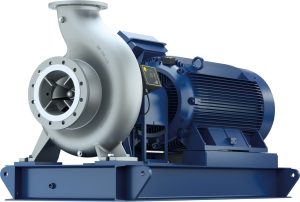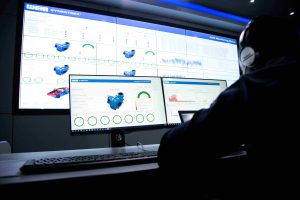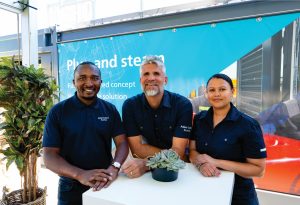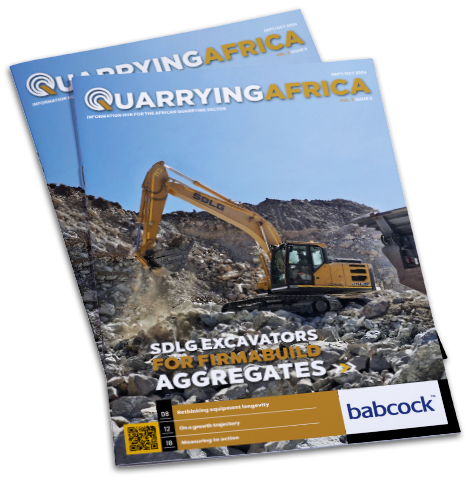JSE-listed Bell Equipment (Bell) has released final results for the year ended 31 December 2023, achieving record sales and production. Ashley Bell, CEO of Bell, says that unprecedented global demand for equipment in most markets continued, supported by a positive commodity cycle and infrastructure spending, delivering a very pleasing result for the second consecutive year.
“We are exceptionally proud of the Bell team as they demonstrated resilience and adaptability throughout the year. They overcame considerable obstacles, most notably continued supply chain challenges, port congestion in South Africa and labour shortages in Europe,” he said.
Higher logistics costs and inventory buffers have impacted margins, inventory, debt levels, and return on invested capital (ROIC).
“An investment in solar power installations at both our Richards Bay factory and our Johannesburg sales and distribution facility has mitigated some of the loadshedding challenges in South Africa. Although this is a long-term cost-saving project, it also offers significant operational advantages by reducing generator running costs and associated emissions due to load shedding and municipality infrastructure failure,” says Bell.
He adds that the South African-based suppliers have contingency plans in place for load shedding. However, these measures drive up costs and the overall impact on the local economy is a huge concern.
The strategy is to grow the business organically by investing in the ongoing development and enhancement of Bell OEM products, increasing market share in key markets, and growing the Bell Heavy Industries (BHI) contract manufacturing business in Richards Bay.
The BHI initiative supports the South African economy and, importantly, keeps people and skills employed. “We have initiated discussions with potential customers and aim to help stimulate the South African manufacturing sector via contract manufacturing to support local demand. We envisage providing services to the construction, energy, mining, and transport sectors,” says Bell.
“Part of this sustainability strategy includes pursuing a greater level of manufacturing of our articulated dump truck (ADT) at our German factory due to growth in our Northern Hemisphere market share and penetration. Our expanding European supplier base has amplified the negative impact of ‘round-tripping’ materials and components from Europe to South Africa and reinforced our decision to manufacture our Northern Hemisphere ADTs closer to both suppliers and markets,” he explains.
We aim to align the repositioning of our ADT manufacturing with the growth of our BHI division as far as possible. Bell says that global commodity demand translated into good ADT demand from the mining sector in Africa, South East Asia and Australia. Further growth came from the United States and parts of Europe, driven largely by the construction sector as infrastructure projects continued. “The United States is the world’s largest ADT market and remains the greatest market opportunity for growth for our ADT business,” he indicates.
Infrastructure projects in the UK were either scaled back or put on hold during 2023, which resulted in under-utilisation of large fleets of equipment and unforeseen pressure in this market.
“We are looking forward to launching several exciting new products. Foremost is our Bell motor grader, which will be manufactured in Richards Bay from early 2025,” Bell says. The motor grader has been in development for several years, and Bell believes that a class-leading product with respect to innovation, performance and reliability has been developed. This product will take its place alongside the reputable Bell ADT line in the local and global market.
Autonomous-controlled ADTs remain a focal point, particularly in the Northern Hemisphere, with fully autonomous driver-less Bell ADTs operating on customer sites in Europe and North America. “Our engineering team also continues to explore different technologies and avenues to find suitable alternative fuel and propulsion solutions for a zero-carbon future,” he says.
Bell explains that the implementation of new mining safety regulations in South Africa has driven demand for pedestrian detection system (PDS) solutions on new and existing equipment in the local mining sector. “This validates the forward-thinking design of our ‘PDS-ready’ ADTs, allowing seamless and cost-effective integration with any preferred detection system. As the market adjusts to the new regulatory landscape, we believe our PDS solutions establish Bell as a partner of choice for mines across the country,” Bell says.
“To complement our forestry and agriculture product range, we have developed a Bell Timber Processing Head for timber harvesting operations, which we expect to put into production during early 2025,” he says.
He goes on to say that the strategy to develop a strong dealer network in South Africa to provide better coverage and dedicated service and support directly to its agriculture and forestry customers has found real traction. “In the past 18 months, our network has grown to 24 dealers and 49 outlets nationwide, including several BESSA branches,” he explains.
“The aftermarket segment remains a critical aspect of our business,” says Bell, explaining that the group’s ability to provide parts and service support throughout the life of a Bell machine largely determines repeat purchases by customers and provides the group with a revenue stream for the life of the machine.
Revenue for the year increased by 32% to R13 513,6-million (2022: R10 276,2-million) with profit for the year increasing by 66% to R793,6-million compared to R478,9-million in the previous year. Inventory and receivables were higher than planned at year end and this impacted on debt levels. Reducing the level of investment in working capital is a priority as are our plans to re-position more ADT manufacturing closer to suppliers and key markets, in time.
Over the last two financial years, pleasing traction was gained in realising planned growth, and Bell will continue along this path. By its nature, growth in the business requires significant working capital investments in inventory and receivables. With this in mind, coupled with a reflection on current volatile global political and economic uncertainties, the board has resolved to preserve cash resources rather than paying a dividend at this time. This will be reviewed at the interim results stage.
Bell Equipment operates in a cyclical business environment, which has benefited the group for the past few years. However, there are signs of global markets cooling off from record highs.
Bell indicates that the easing of demand in major markets gives the group scope to vigorously pursue growth opportunities in new and existing markets for current products and the innovations the group is pioneering in the mining, construction, forestry and agriculture sectors. “With the supply chain constraints of the last two years also easing up, we anticipate a smoother year for production during 2024,” he says.
The order book for 2024 remains at a reasonable level and total market demand volumes are expected to normalise, following the unprecedented record high experienced through 2023. “Over 60 countries in the world are holding elections in 2024, including South Africa in May 2024, which we anticipate could have significant macroeconomic impacts.”
Ongoing energy problems, port delays, the general poor performance of state-owned enterprises, the risk of potential disruptions from social unrest such as those experienced in 2021, are expected to continue to challenge doing business in South Africa.
The construction sector in South Africa remains volatile, and the promised large infrastructure spend has not materialised as quickly as hoped. “Although coal exports are a concern, Eskom’s demand for coal is still high, and at this stage we expect demand from other mining sectors to remain fairly consistent with the levels seen during 2023,” he says.
In conclusion, Bell notes that, “Our customer focus, world class products and continuous innovation, coupled with our strategy to better balance the business globally, will ensure resilience and sustainability.”





